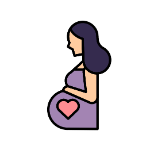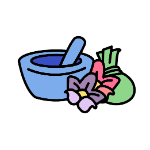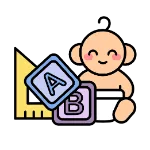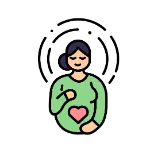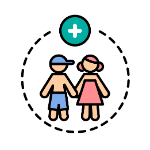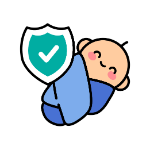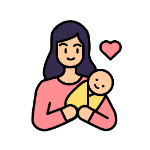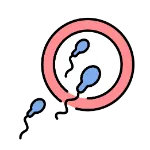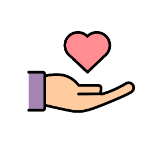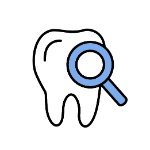
All You Need To Know About Postpartum Hair Loss
10 min | Updated on 30-03-2023 by HappyPreggie
Mood swings, stretch marks, nausea are some of the common topics discussed within the pregnancy moms, but not many are discussing hair loss, the one thing that immediately affects them after childbirth. During pregnancy, the increased blood volume, circulation and oil secretion gives your skin a natural radiance, as well as giving you thicker and healthy hair. But somewhere between the 3 to 6 months of your post-pregnancy period, your once thick and gorgeous hair started falling off - from strands to clumps. What you are experiencing is postpartum hair loss, also known by its technical name; telogen effluvium.

During your pregnancy, your hair looked healthier and thicker, all thanks to the increased levels of estrogen and androgen. However, after you have given birth, the estrogen and androgen levels will gradually drop, causing your hair to start shedding excessively.
In other words, our hair normally grows in cycles (growing, resting, shedding) but your hair remains in the growing phase throughout pregnancy due to the big changes in your body’s hormones. So after your baby is born, your body’s hormones will return to its pre-pregnancy state, which means your hair will undergo the normal cycle again.
The amount of hair you’re losing may seem concerning, but it's probably similar to the amount you should have lost for the past 9 months. It only seemed a lot because you’re losing it all at once.

Postpartum hair loss usually starts from 1 to 6 months after childbirth, and usually lasts about 3 months before it slows down. In some cases, the hair loss can go for as long as 12 months, but it is definitely not permanent.
However, if your hair loss continues even after your child’s first birthday, you may want to go and see your doctor as there may be other factors, such as anemia or thyroid, causing your hair loss.
Unfortunately, you cannot prevent postpartum hair loss from happening. It is a normal and common part of pregnancy recovery. There aren't any treatments to stop postpartum hair loss. However, there are several ways you can tackle the issue and gain your confidence back!

Familiar with the phrase, ‘You are beautiful inside out’? To maintain a good outer appearance, you should first take care of your nutritional intake. Vitamins and nutrients are important for your hair growth, as they generate new cell growth throughout your body. So you will want to consider adding these vitamins and nutrients in your diet to help with regrowing your hair back after the shedding phase.
ii. Choose the Correct Shampoo and Conditioner

Using the right hair product can also give your hair the illusion of fullness so you may want to use a volumizing shampoo and lightweight conditioners formulated for fine hairs that won't weigh down your hair. Be mindful to not pick one with labels like ‘intensive conditioning’ and ‘conditioning shampoo’ as it is more likely to cause your hair to look limp.

Hair loss is much more noticeable with longer hair, so you will want to consider cutting your hair short. Consider getting the front hair shorter and layering your hair to give your hair the illusion of volume and fullness.
Other than a haircut, you can also dye your hair, or gloss your hair to bring back that all-over shine. Another simpler alternative is by parting your hair the other way, for example, if you are used to the middle part, you can change it for a side part to disguise the thinning of your hair.

If you are a busy mom, or uninterested in spending money to style your hair, you may want to opt for hair ornaments. Headbands, scarves and bandannas are some of the ornaments you can wear to hide your hair loss. Other than hiding the thinning of your hair, it can also make you feel more attractive, thus boosting your confidence to the max!
All in all, remember that hair loss is normal and happens to almost all moms. So, don’t feel too discouraged about losing your hair, it is just a temporary phase in life. Focus on the good things and give yourself the best care possible!
Stress can cause further hair loss, so relieve your stress by watching movies with your family, and read these articles to help you pick the best movies to watch!: Best 15 Animated Movies Of All Time To Watch In 2022 With Your Kids and 10 Family-Friendly Movies To Watch With Your Kids During The Lockdown.
(Image credits to TheBump)
What Causes Postpartum Hair Loss?
During your pregnancy, your hair looked healthier and thicker, all thanks to the increased levels of estrogen and androgen. However, after you have given birth, the estrogen and androgen levels will gradually drop, causing your hair to start shedding excessively.
In other words, our hair normally grows in cycles (growing, resting, shedding) but your hair remains in the growing phase throughout pregnancy due to the big changes in your body’s hormones. So after your baby is born, your body’s hormones will return to its pre-pregnancy state, which means your hair will undergo the normal cycle again.
The amount of hair you’re losing may seem concerning, but it's probably similar to the amount you should have lost for the past 9 months. It only seemed a lot because you’re losing it all at once.
How Long Will the Postpartum Hair Loss Lasts?
(Image credits to Freepik)
Postpartum hair loss usually starts from 1 to 6 months after childbirth, and usually lasts about 3 months before it slows down. In some cases, the hair loss can go for as long as 12 months, but it is definitely not permanent.
However, if your hair loss continues even after your child’s first birthday, you may want to go and see your doctor as there may be other factors, such as anemia or thyroid, causing your hair loss.
How To Treat Postpartum Hair Loss
Unfortunately, you cannot prevent postpartum hair loss from happening. It is a normal and common part of pregnancy recovery. There aren't any treatments to stop postpartum hair loss. However, there are several ways you can tackle the issue and gain your confidence back!
i. Eat a balanced and healthy diet
(Image credits to Food Network)
Familiar with the phrase, ‘You are beautiful inside out’? To maintain a good outer appearance, you should first take care of your nutritional intake. Vitamins and nutrients are important for your hair growth, as they generate new cell growth throughout your body. So you will want to consider adding these vitamins and nutrients in your diet to help with regrowing your hair back after the shedding phase.
- Vitamin A -Known to help produce sebum, which helps moisturize the scalp to promote healthy hair growth. However, taking too much of vitamin A can be toxic, so be mindful when you are planning your diet!
- Vitamin B - Composed of these eight water-soluble vitamins substances, that is thiamine (B1), riboflavin (B2), niacin (B3), pantothenic acid (B5), vitamin B6, biotin (B7), folate (B9), and vitamin B12. Deficiencies in the vitamins mentioned have long been associated with hair loss, thus including it in your diet can help with hair growth.
- Vitamin C - A powerful antioxidant that protects you against oxidative stress caused by free radicals, which can cause your hair to age and block its growth. It produces protein collagen, which is important for your hair structure, and also enhances your body’s necessary iron absorption for hair growth.
- Vitamin D - Plays a vital role in stimulating new and old hair follicles. Insufficiency of vitamin D in your body can stunt new hair growth. The easiest way to obtain vitamin D is when you’re in contact with direct sunlight, so spend some time on morning walks!
- Vitamin E - An antioxidant that will protect you from oxidative stress caused by free radicals.
- Zinc - Supports the proteins that build new cells, tissue, and DNA. In addition, it helps keep the oil glands around the follicles working properly, which improves your hair growth and repair.
- Iron - One of the most important minerals for countless bodily functions, including hair growth. Iron, if taken together with vitamin C can help your body absorb up to six times the amount, which can boost your hair growth!
- Protein - Hair is almost entirely made up of protein, hence consuming this is very important for hair growth. Amino acids in protein also help with building and repairing collagen cells.
- Selenium - Required for the synthesis of more than 35 proteins, which your hair is mostly made up of. It provides the minerals needed to have healthier and stronger hair.
ii. Choose the Correct Shampoo and Conditioner
(Image credits to Shape)
Using the right hair product can also give your hair the illusion of fullness so you may want to use a volumizing shampoo and lightweight conditioners formulated for fine hairs that won't weigh down your hair. Be mindful to not pick one with labels like ‘intensive conditioning’ and ‘conditioning shampoo’ as it is more likely to cause your hair to look limp.
iii. Get a New Haircut
(Image credits to The Print)
Hair loss is much more noticeable with longer hair, so you will want to consider cutting your hair short. Consider getting the front hair shorter and layering your hair to give your hair the illusion of volume and fullness.
Other than a haircut, you can also dye your hair, or gloss your hair to bring back that all-over shine. Another simpler alternative is by parting your hair the other way, for example, if you are used to the middle part, you can change it for a side part to disguise the thinning of your hair.
iv. Wear Hair Ornaments
(Image credits to AllThingsHair)
If you are a busy mom, or uninterested in spending money to style your hair, you may want to opt for hair ornaments. Headbands, scarves and bandannas are some of the ornaments you can wear to hide your hair loss. Other than hiding the thinning of your hair, it can also make you feel more attractive, thus boosting your confidence to the max!
All in all, remember that hair loss is normal and happens to almost all moms. So, don’t feel too discouraged about losing your hair, it is just a temporary phase in life. Focus on the good things and give yourself the best care possible!
Stress can cause further hair loss, so relieve your stress by watching movies with your family, and read these articles to help you pick the best movies to watch!: Best 15 Animated Movies Of All Time To Watch In 2022 With Your Kids and 10 Family-Friendly Movies To Watch With Your Kids During The Lockdown.
Join the largest support network for family health and well-being. Ready to get started?
Get started
